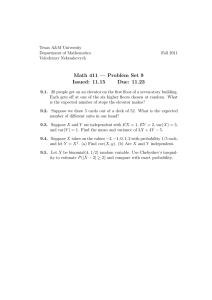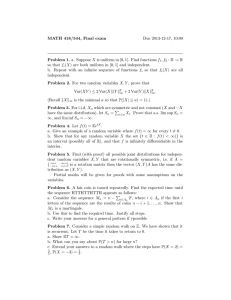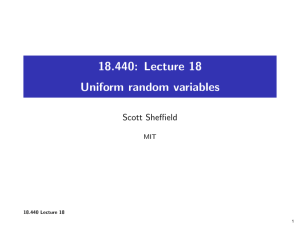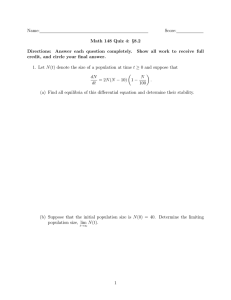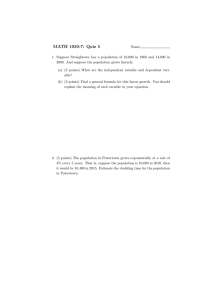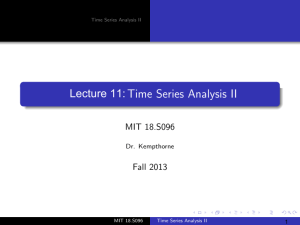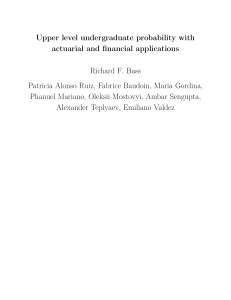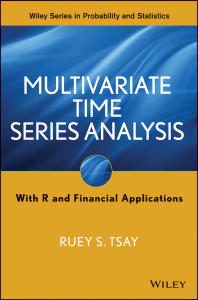MASSACHUSETTS INSTITUTE OF TECHNOLOGY 6.436J/15.085J Fall 2008 Problem Set 8
advertisement
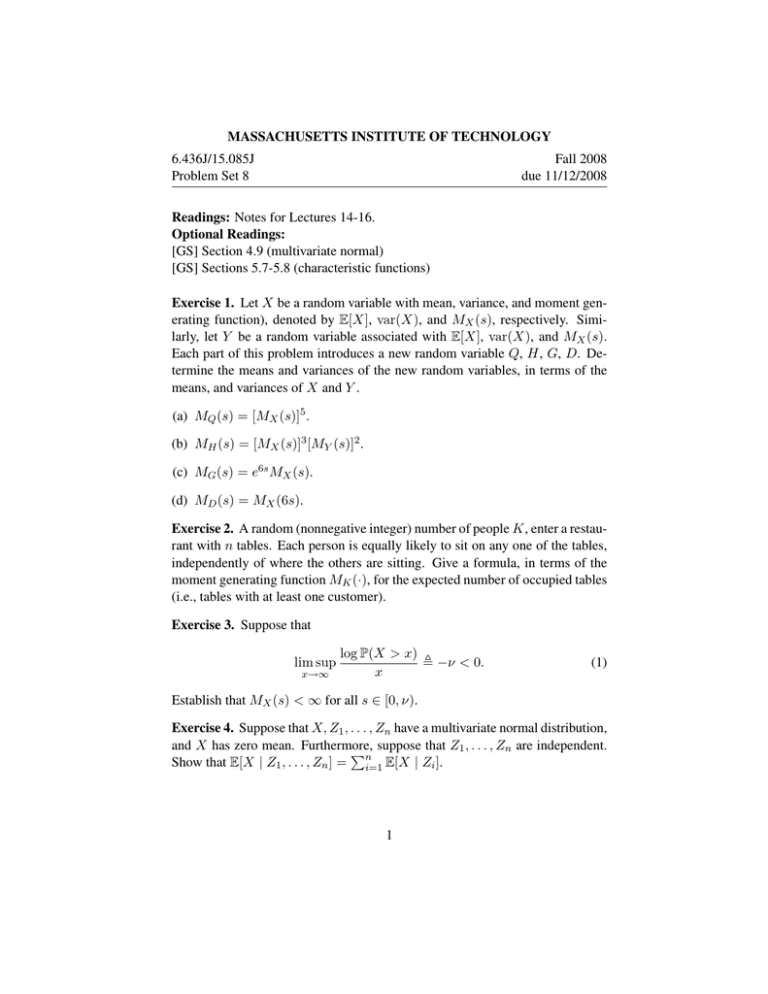
MASSACHUSETTS INSTITUTE OF TECHNOLOGY 6.436J/15.085J Problem Set 8 Fall 2008 due 11/12/2008 Readings: Notes for Lectures 14-16. Optional Readings: [GS] Section 4.9 (multivariate normal) [GS] Sections 5.7-5.8 (characteristic functions) Exercise 1. Let X be a random variable with mean, variance, and moment gen­ erating function), denoted by E[X], var(X), and MX (s), respectively. Simi­ larly, let Y be a random variable associated with E[X], var(X), and MX (s). Each part of this problem introduces a new random variable Q, H, G, D. De­ termine the means and variances of the new random variables, in terms of the means, and variances of X and Y . (a) MQ (s) = [MX (s)]5 . (b) MH (s) = [MX (s)]3 [MY (s)]2 . (c) MG (s) = e6s MX (s). (d) MD (s) = MX (6s). Exercise 2. A random (nonnegative integer) number of people K, enter a restau­ rant with n tables. Each person is equally likely to sit on any one of the tables, independently of where the others are sitting. Give a formula, in terms of the moment generating function MK (·), for the expected number of occupied tables (i.e., tables with at least one customer). Exercise 3. Suppose that lim sup x→∞ log P(X > x) � −ν < 0. x (1) Establish that MX (s) < ∞ for all s ∈ [0, ν). Exercise 4. Suppose that X, Z1 , . . . , Zn have a multivariate normal distribution, and X has zero mean. Furthermore, � suppose that Z1 , . . . , Zn are independent. Show that E[X | Z1 , . . . , Zn ] = ni=1 E[X | Zi ]. 1 Exercise 5. Let X, W1 , . . . , Wn be independent normal random variables, with E[X] = µ, var(X) = σ02 , E[Wi ] = 0, var(Wi ) = σi2 . We want to estimate X on the basis of noisy observations of the form Yi = X + Wi . Derive the formula for E[X | Y1 , . . . , Yn ]. Exercise 6. Suppose that the multivariate characteristic function of two random variables X and Y is factorable; that is, there exist functions φ1 and φ2 such that φX,Y (s, t) = φ1 (t) · φ2 (s), for all s, t. Show that X and Y are independent. Hint: Recall the proof of independence for multivariate Gaussians, and argue similarly. Exercise 7. (a) Find φX (t) if X is a Bernoulli(p) random variable. (b) Suppose that φXi = cos(t/2i ). What is the distribution of Xi ? (c) Let X1 , X2 , . . . be independent and let Sn = X1 + · · · + Xn . Suppose that Sn converges almost surely to some random variable S. Show that � φS (t) = ∞ φ X i (t). i=1 � i (d) Evaluate the infinite product ∞ i=1 cos(t/2 ). Hint: Think probabilisti­ cally; the answer is a very simple expression. 2 MIT OpenCourseWare http://ocw.mit.edu 6.436J / 15.085J Fundamentals of Probability Fall 2008 For information about citing these materials or our Terms of Use, visit: http://ocw.mit.edu/terms.
